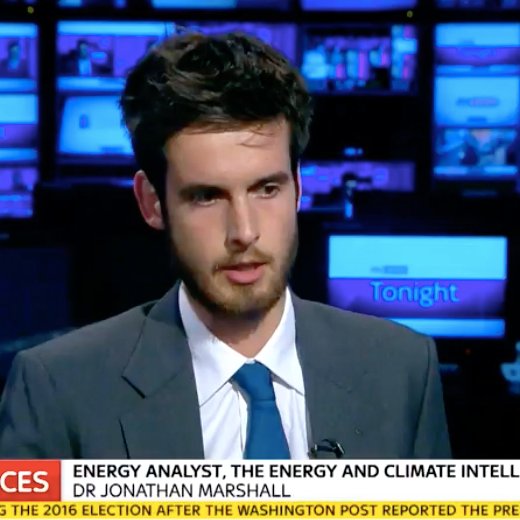
Jonny Marshall
@JMarshall_3
Followers
2K
Following
595
Media
232
Statuses
1K
Principal Economist working on energy and climate policy @resfoundation
Joined March 2016
Higher energy bills driving today's inflation figures, with changes in fuel costs behind nearly 90% of the year-on-year increase. Policies that pay for environmental and social schemes (among other things) up a bit too but nowhere near as much
Inflation is rising again. The latest data this morning revealed that inflation jumped to 3.5% in April, up from from 2.6% in March. That rise of almost a whole percentage point is the sharpest uptick we've seen since inflation peaked at 11.1% in Oct 2022.
0
2
2
Poorer and younger households will be most impacted by the bus fare cap increasing to £3. The lowest income fifth take twice as many £2+ bus trips than the richest, and those under 30 take almost 4 times as many as the over 60's.
2
25
49
The Chancellor should end the 12-year freeze on fuel duty in this Budget. Even with a rise of around 6p, Fuel Duty will remain very low by historic standards and still be lower than after the 5p cut was introduced in March 2022.
12
4
12
and more from @zackleather on how we can make sure that those who don't drive can still tap into the savings from low carbon travel https://t.co/asFxzXHH3J
Unlike cars, it's not yet clear what role public transport will play in decarbonisation. Our take: buses and trains probably won't make a big dent in climate targets, but we should be worried that passengers may miss out on the big savings EVs bring. https://t.co/dCCJzMA8MX
0
0
0
this needs sorting out – sharing the big savings that EVs will bring depends on access to cheap electricity we wouldn’t accept local monopolies for petrol stations, so why for EV chargers?
1
0
0
but the main priority should be ensuring there is competition between companies. Unfortunately we can see that local monopolies are common, especially in poorer parts of cities (that aren’t London)
1
0
0
there are a few ways of sorting this: public chargers are overtaxed and developers’ costs could be lower
1
0
0
but what isn’t being overplayed is the cost of using these chargers – it now cost double to charge at a slow on-street charger than it does at home
1
0
0
Looking at the rollout through this lens instead of the normal approach – where all chargers are the same and all places are assumed to have the same need – means we can start to see that concerns on charging provision are being overplayed
1
0
0
this is absolutely vital for building a public charging network that doesn’t leave poorer drivers behind
1
0
0
they are also popping up more in places where fewer homes have off-street parking and – crucially – more are being installed in poorer places than in richer ones
1
0
0
so instead of the overall size of the network, we should focus on the cheaper, kerbside chargers that are cheaper and easier for drivers without off-street parking to use and the good news is that these are increasing in number and becoming more spread around the country
1
0
0
And while the public charging network is growing rapidly, what is important is making sure these headline numbers don’t gloss over the chargers most useful for those without off-street parking
1
0
0
This is important because those reliant on public chargers are more likely to be on lower incomes, younger and renters
1
0
0
But while there is a plan to get more EVs on the roads, there have long been concerns for how those who can’t charge at home will top them up.
1
0
0
these tax breaks should go By announcing that they will only last for a few more years we can bring forward demand EVs, hit sales mandate targets, get more EVs on the road sooner and end a poor use of subsidy
1
0
0
Why is the government still subsidising EVs when a) there are more cheap ones for sale and b) the ZEV mandate is designed to see carmakers cross-subsidise EVs internally by making non-EVs more expensive?
1
0
0
these tax breaks are bigger for people who earn more, and bigger when drivers opt for more expensive vehicles (ie the opposite approach to the final days of the old subsidy scheme)
1
0
0
But despite policy (the ZEV mandate) to spur manufacturers to sell more (and more cheap) EVs, we are still offering big subsidies, such as through salary sacrifice tax breaks
1
0
0



